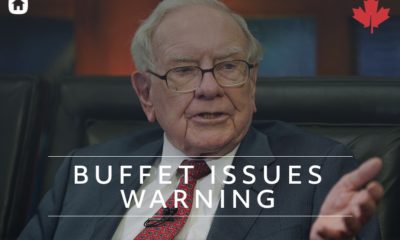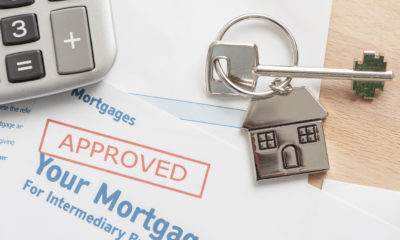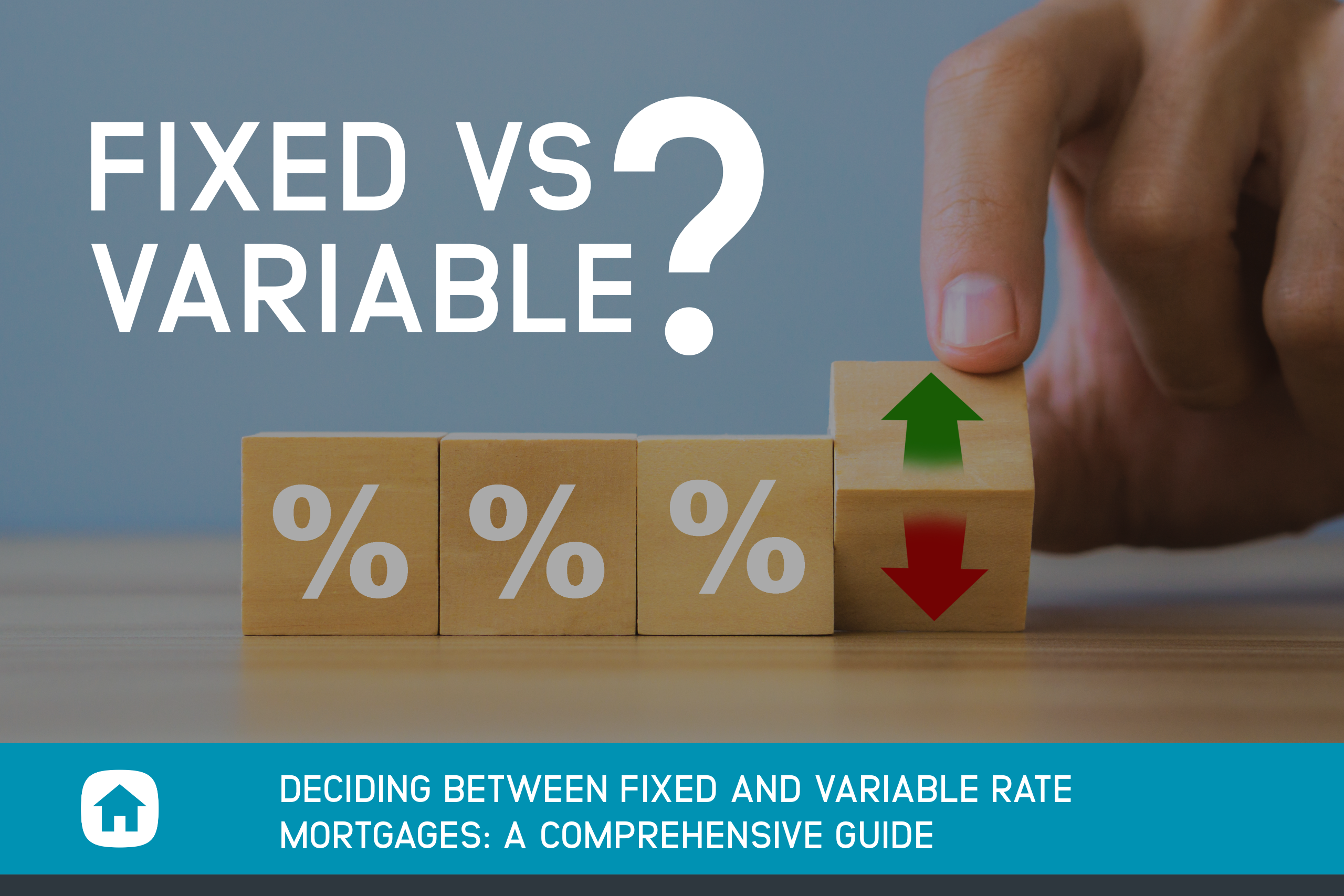In the journey of securing a mortgage, the topic of interest rates will inevitably surface. And if you’re working with a savvy banker or mortgage broker, they’ll pose a seemingly simple yet crucial question: “Do you prefer a variable or fixed rate?” But how do you even begin to answer without fully grasping the long-term implications of your choice?
The decision between a fixed or variable interest rate is not just about numbers; it’s about understanding why these options exist in the first place and how they could impact your financial future.
In this article, I’ll unpack the nuances of fixed and variable rates. We aim to give you the insights needed to navigate this critical conversation confidently. After all, there’s no universal ‘best’ choice here – the ideal option hinges on your unique circumstances and long-term financial plans.
What is the difference between Variable and Fixed Rate?
The labels offer a good starting point when choosing between fixed and variable interest rates. As the name suggests, a fixed-rate mortgage maintains the same interest rate for the entire loan term, ensuring stability and predictability in your payments. On the other hand, a variable-rate mortgage, also known as an adjustable-rate mortgage, changes in tandem with the market. The typical variable rate mortgage in Canada is commonly linked to the Bank of Canada’s overnight lending rate, which drives each financial institution’s “prime rate”.
At first glance, one might think the choice between fixed and variable rates is a simple question of predicting market trends: if you believe rates will decrease during the term of your mortgage, you might be inclined towards a variable rate. Conversely, a fixed rate might seem safer if you expect rates to rise. However, this kind of prediction requires a crystal ball, something none of us possess, and is not the best way to decide on variable vs. fixed rates.
The decision to choose fixed or variable rates should not solely rely on predictions about market trends. There are subtle yet significant differences between the two options that should sway your decision beyond current market rates. In the following sections, we’ll delve deeper into these nuances and how they could impact your mortgage journey.
Weighing Up Fixed vs Variable Rates: Who are they for?
Historical data suggests that variable rates typically have a lower overall cost of borrowing over the life of a mortgage. In fact, until the rate hikes began in 2022, the variable rate had been the superior option for almost two decades straight.
So there it is, we have arrived at an answer, and now we only need to consider why both fixed and variable rates exist when the variable rate is strategically the best answer.
Well, in my opinion, the decision to choose a variable vs. a fixed rate is more about providing you with options that cater to your individual and unique circumstances. Forget about statistics for a moment, and remember that, like investing, past results do not indicate future returns, so even though statistics say variable is better, they are not always better.
For instance, fixed rates are a haven for budget-conscious homeowners, offering a consistent payment schedule with no surprises. This predictability can be especially beneficial for first-time homebuyers. When you’re already navigating the unexpected costs of home ownership – from sudden repairs to outfitting your new space – the stability of a fixed rate can be a financial lifesaver, giving you peace of mind for a full five years.
On the other hand, variable rates present an attractive option for those who have their sights set on swift mortgage repayment. If you have the financial capacity to manage increased payments or even make lump sum contributions throughout your term, a variable rate could help you reach that ‘mortgage-free’ milestone faster.
Additionally, variable rates carry a lesser “penalty” for breaking your mortgage term early. So, if you’re unsure about potential moves in the near future, a variable rate could save you from hefty penalties down the line.
Consider this before selecting a Variable Rate or a Fixed Rate.
If you and I were working together, here are the issues that I would ask you to consider before making your decision:
Your Financial Comfort: Financial stability and peace of mind play a significant role in deciding between a fixed and variable-rate mortgage. A fixed-rate mortgage could be your better option if you prefer stability, even if it might mean paying slightly more over the long term.
Your Risk Tolerance: Variable rates have the potential for upsides and downsides. If you’re comfortable with a bit of risk and the potential for fluctuating payments, a variable-rate mortgage could work in your favour.
Think of it this way: Would you choose a riskier stock or a guaranteed investment certificate (GIC) if you were to invest? If the mere thought of stock market fluctuations makes you uneasy, a fixed rate is your GIC. It’s a choice that doesn’t add extra stress to your life.
Your Future Plans: If you’re unsure about your future—whether due to potential job changes, relocation, or other uncertainties—a variable rate mortgage may be a better option because it usually has lower penalties for breaking the mortgage term early. Giving you the flexibility to make changes without the significant impact of a hefty mortgage prepayment penalty.
Your Financial Goals: If your goal is to pay off your mortgage as quickly as possible and you have the financial means to handle potential rate increases, a variable rate might be the way to go. However, if you prefer a consistent budgeting structure and want to avoid the anxiety of a potential rate increase, you might opt for a fixed rate.
Remain Consistent
Once you have considered all of this, it is crucial to understand that an essential aspect of choosing between a fixed-rate and variable-rate mortgage is the commitment to remain consistent in your decision.
Many homeowners fall into the trap of trying to ‘time’ the market, hoping to capitalise on fluctuating interest rates. They oscillate between fixed and variable-rate mortgages, assuming they can outsmart the financial markets. However, this approach typically proves to be more detrimental than beneficial. Market conditions are notoriously difficult to predict, even for seasoned professionals. Attempting to switch back and forth in anticipation of interest rate changes can lead to financial instability and create stress and uncertainty.
A consistent approach towards your mortgage choice helps to avoid unnecessary distractions.
It’s easy to get swept up in the whirlwind of fear-based financial news, with its daily doomsday predictions and hype around market fluctuations. You can avoid this noise by making an informed mortgage decision that aligns with your long-term financial strategy. You’ll gain peace of mind, knowing that you have a plan in place that’s tailored to your circumstances and goals. This will protect you from the stress and worry often associated with reactionary decisions triggered by the latest headlines.
Therefore, it’s more prudent to carefully consider your financial circumstances, risk tolerance, and long-term goals before choosing a mortgage type. Once you’ve chosen, stick to it consistently rather than trying to play the market. This steadfast approach will serve you better in the long run, providing stability and predictability to your mortgage payments.
In conclusion, deciding between a fixed or variable-rate mortgage is a deeply personal decision that involves much more than just interest rates. It encompasses your financial well-being, future plans, and peace of mind.
Predicting interest rate movements is akin to gazing into a crystal ball – uncertain and unpredictable. Rather than focusing on factors beyond your control, focusing on the circumstances you can influence is more practical and beneficial.
In short, understanding your financial picture in the present and future is far more beneficial than attempting to predict market conditions. Let me help you navigate these complexities, guiding you towards the option that best aligns with your unique financial situation and goals.
Key Take Aways:
Fixed Rate Mortgages
Pros:
- It provides stability and predictability, which is ideal for budgeting.
- Excellent choice for first-time homebuyers who may face unforeseen expenses.
- Similar to a GIC, it reduces financial stress and uncertainties.
Cons:
- Typically, fixed rates are slightly higher than variable rates.
- It can come with higher penalties if you need to break the mortgage term early.
Variable Rate Mortgages
Pros:
- Offers the potential for lower interest costs over the long term.
- Historically, they have often been the better choice.
- Lower penalties for breaking the mortgage term early.
- Allows for greater flexibility in terms of making additional payments.
Cons:
- Rates can fluctuate, leading to potential stress about increased costs.
- Requires a solid financial cushion to accommodate potential rate increases.

 Buying a Home5 years ago
Buying a Home5 years ago
 Credit6 years ago
Credit6 years ago
 5 Mortgage Secrets6 years ago
5 Mortgage Secrets6 years ago
 Business4 years ago
Business4 years ago
 Buying a Home6 years ago
Buying a Home6 years ago
 5 Mortgage Secrets6 years ago
5 Mortgage Secrets6 years ago
 Business4 years ago
Business4 years ago
 Buying a Home6 years ago
Buying a Home6 years ago






